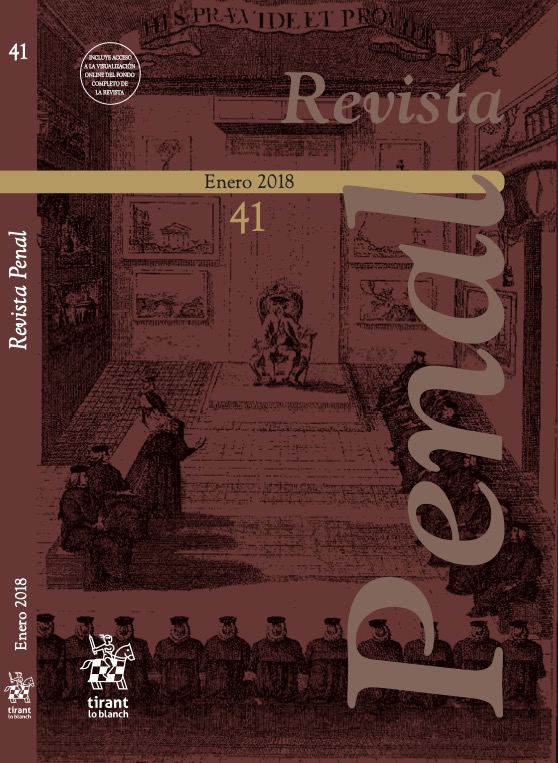Banking crisis and Economic Criminal Law: between the need of protecting savings and the autonomy of market. Problems and ideas for reform
DOI:
https://doi.org/10.36151/Keywords:
business criminal law, banking criminal law, protection of savings, patrimonial infidelity, economic crisis, bail-in, criminal phenomenology within the companyAbstract
The present work aims to understand how the modern criminal science can approach the regulation of the criminal phenomena related to the activities of the banking system, particularly affected by systemic crises that, in Italy, have determined, between 2015 and 2016, the adoption of specific legislative instruments aimed to mitigate the effect of the potential collapse of the entire banking system. The impetus given by a recent European regulation on the prevention and resolution of banking crises, contained in Directive 2014/59 / EU (Bank Recovery and Resolution Directive - BRRD), has strongly reiterated the issue of forms of protection of savings also using the criminal sanctions. In this contribution, we first examine what the role of Italian criminal law should be in fighting these forms of crime, considering correctly how to protect the forms of savings and the free market, inspired to the respect of the roles of competition. It is evident, however, that this intervention must achieve an adequate balance between the use of the sanction and the free market, therefore, between capitalism and the care of collective interests in respect of the principle of legality and its corollaries. In this context, we examine the last national extra-criminal legislative interventions such as “bail-in”, aimed at ensuring the rescue of banks and the partial inadequacy of the criminal system of corporate offenses to prevent and repress the infidel conducts or those one realized in conflicts of interest that may prejudice internal creditors and shareholders, already particularly affected by the negative consequences of the global economic crisis. Finally, some legislative interventions are hoped, with reference to the crime of patrimonial infidelity, provided by the art. 2634 of the Civil Code, which could make the protection of criminal law more effective, in the awareness that the entire banking and business system must be inspired to the respect of ethical principles that guarantee a relationship of trust between business and citizens.



